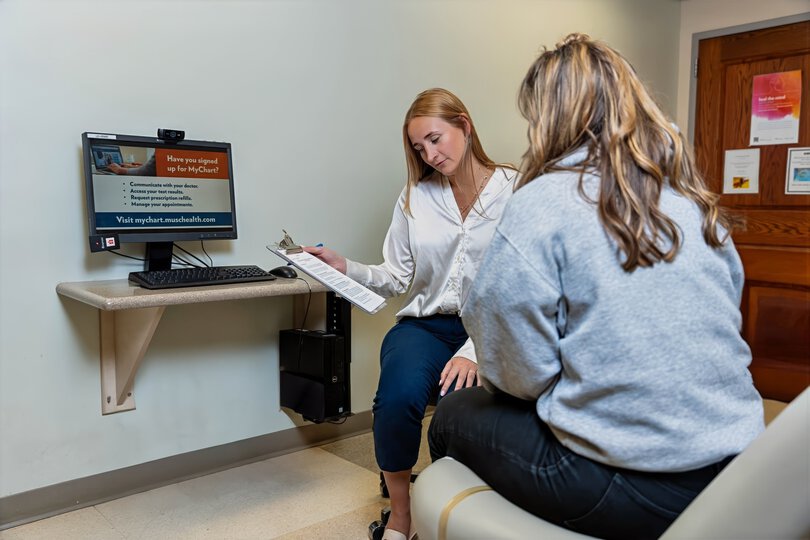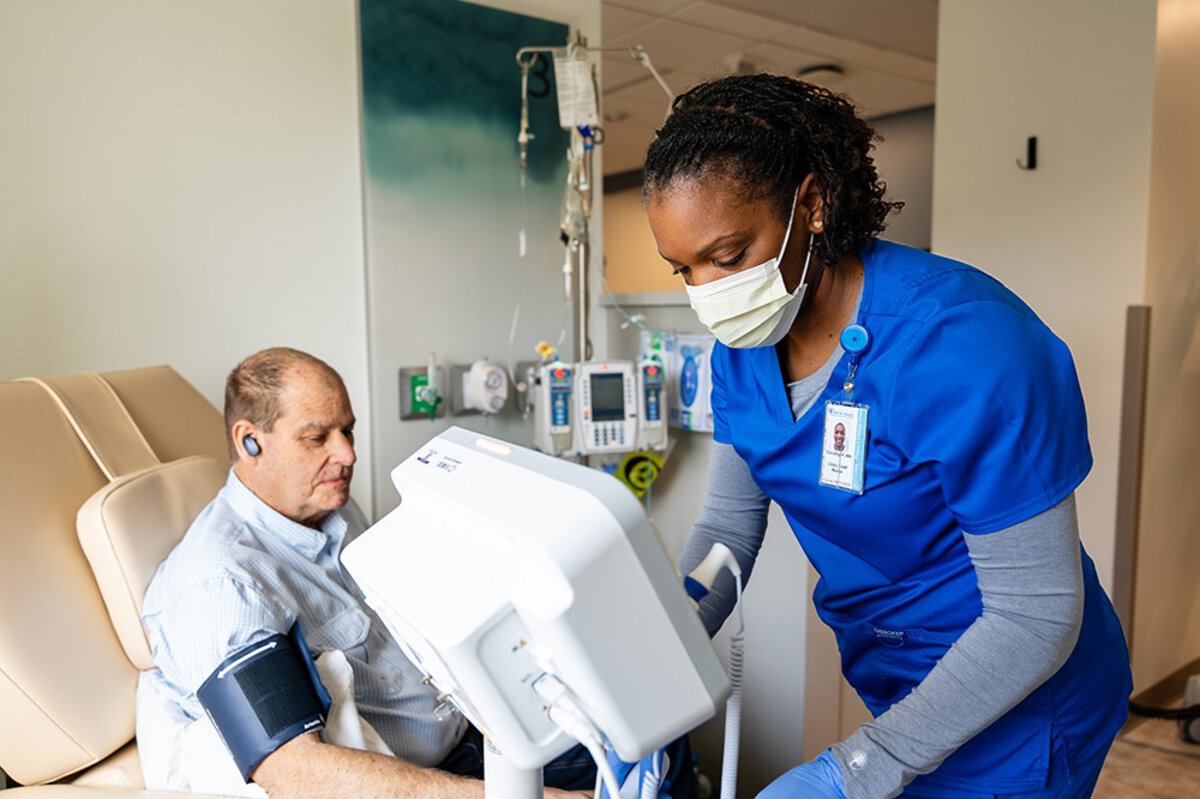What different clinical trial phases mean
Treatment clinical trials are divided into phases. A treatment must show a benefit in order to move into the next phase. These phases start small and get bigger – usually a treatment must be tested in many people to truly understand if it works.
Phase I Trials
Phase I trials are very small – maybe a couple of dozen people. The main goal is to evaluate the safety of a drug. However, as new drugs become more targeted, some patients do get a medical benefit from participating in a Phase I trial.
Phase I trials require extensive monitoring and documentation, so they are often performed at academic medical centers or National Cancer Institute-designated cancer centers, like Hollings.
Phase II Trials
Phase II trials are somewhat larger. They might include up to 100 participants. Phase II trials begin to look at the effectiveness of a treatment. They also monitor for side effects.
Phase III Trials
Once researchers have evidence that a treatment works, a Phase III trial tests whether it works better than the current standard of care. This phase can include hundreds or even thousands of participants.
Having so many people involved means that researchers have enough information to look for side effects and understand effectiveness.
Phase III trials are often randomized, double-blinded trials. This means that neither the patient nor the doctor knows whether the patient is receiving standard care or the experimental treatment and that the patient was chosen at random to receive one or the other. This is important because it takes human emotion out of the analysis – doctors naturally want to see their patients get better! By not knowing who is and isn’t getting the experimental treatment, researchers can concentrate on what the data says, not what they hope it says.
Phase IV Trials
Not every treatment gets a phase IV trial. These trials are conducted after a treatment receives FDA approval. They typically look at quality of life, real-world usage and long-term outcomes.








